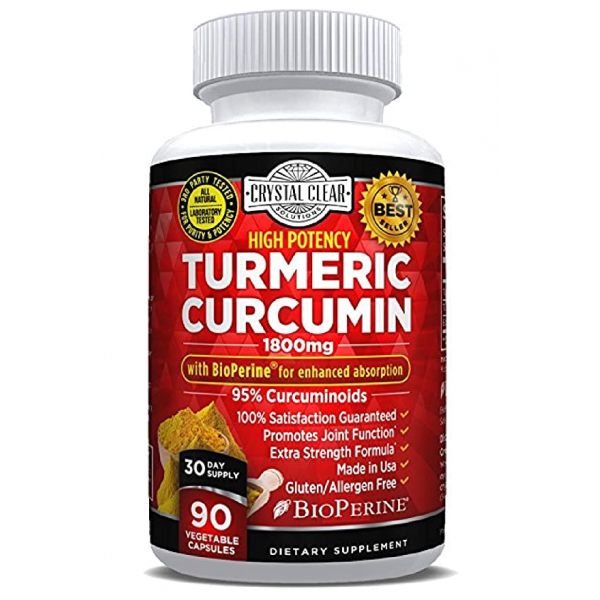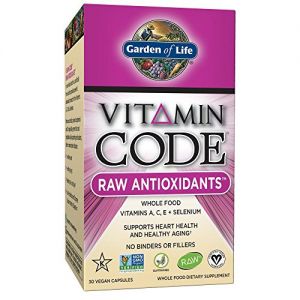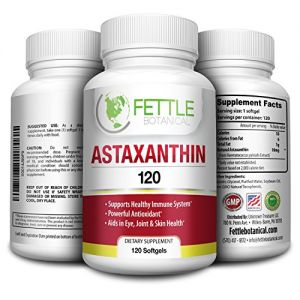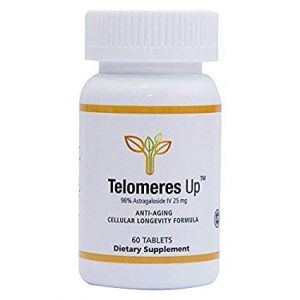Turmeric Curcumin with Bioperine
1800mg
High potency turmeric (curcumin extract) dietary supplement with bioperine, which enhances absorption. This powerful supplement is made in the USA in a GMP and FDA registered facility, contains 95% curcuminoids, and has anti-oxidant, anti-inflammatory, and anti-aging properties.
Best For
Anti-oxidant, anti-inflammatory, and anti-aging properties [1-13, 29]; Supports overall health [4]
Strength
4/5
Results
3/5
Safety
4/5
- Gluten-free
- Pros:
- High potency turmeric (curcumin extract) supplement with bioperine for enhanced absorption and bioavailability
- Contains 95% curcuminoids
- Has anti-oxidant, anti-inflammatory, and anti-aging properties
- Promotes overall health
- Naturally targets inflamed muscles and joints
- Made in the USA in a GMP and FDA registered facility
- Professionally formulated with natural ingredients
- Gluten-free, allergen-free
- Ingredients Concern:
None discovered - Cons:
Large servings of turmeric may cause stomach problems and abnormal heart rhythms in some people
Research shows that curcumin is the active ingredient in turmeric with powerful anti-oxidant, anti-inflammatory, anti-aging properties that improve heart, brain, nervous system, immune system, and lung health, among other biological processes [1-13, 29].
Bioperine dramatically boosts the body's absorption of turmeric and this mineral supports enhanced heart, brain, lung, joint, and muscle health [21-28].
Anti-oxidant, anti-inflammatory, and anti-aging properties [1-13, 29]; Supports overall health [4]
Turmeric consists of curcuminoids such as the main one called curcumin, which helps reduce the risk of having a heart attack by improving the circulatory system's ability to regulate blood clotting and blood pressure [1]. Curcuminoids can also cross the blood-brain barrier, where they protect brain cells from oxidative damage, inflammation, and protein buildup that is associated with age-related cognitive problems [2, 3]. The majority of these benefits are due to the curcumin component of turmeric, which has potent antioxidant and anti-inflammatory properties that help disrupt various stages of inflammation [4-6]. More specifically, curcumin hinders the activity of inflammatory proteins that can travel into the body's cells and activate genes that trigger inflammation [7, 8].
Furthermore, curcumin's anti-inflammatory properties are so strong that it dramatically improves processes in the body that are linked to cardiovascular, neurodegenerative, metabolic, neoplastic, autoimmune, and pulmonary health issues [9-13]. In addition, curcumin has the capacity to target free radicals (toxins) and it also enhances the activity of antioxidant enzymes the body naturally produces [14-18]. Additionally, curcumin demonstrates anti-cancer properties through its capacity to hinder the growth, development, and (spread) of cancer cells [19, 20].
Although the body readily absorbs curcumin, according to research, combining it with Bioperine improves its absorption by approximately 2000% [21]. Bioperine, also known as piperine, is a black pepper extract that dramatically enhances the body's absorption of other nutrients [22]. This potent mineral also targets joint and muscle discomfort as well as heart, brain, and lung issues bronchitis [23-28]. Chronic low-grade inflammation is linked to premature aging, and it is proposed that curcumin disrupts the activity of NF-kappaB-dependent inflammation as well as mTOR signaling pathways, thereby slowing down the aging process [29].
Key Ingredients: Turmeric (Curcuma Longa) Root 1800mg
All Ingredients: Turmeric (Curcuma Longa) Root 1800mg
For a 3 capsule serving, take 2 capsules in the morning and 1 at night preferably with a meal and water or as directed by your healthcare professional. Do not exceed the recommended dose. Pregnant or nursing mothers, children under the age of 18, and individuals with a known medical condition should consult a physician before using this or any dietary supplement. Keep out of reach of children. Do not use if the safety seal is damaged or missing. Store in a cool, dry place
These statements have not been evaluated by the FDA. These products are not intended to diagnose, treat, cure or prevent any disease.
1. Wongcharoen W, Jai-Aue S, Phrommintikul A, Nawarawong W, Woragidpoonpol S, Tepsuwan T, Sukonthasarn A, Apaijai N, Chattipakorn N. Effects of curcuminoids on frequency of acute myocardial infarction after coronary artery bypass grafting. Am J Cardiol. 2012;110(1):40-4.
2. Mishra S, Palanivelu K. The effect of curcumin (turmeric) on Alzheimer's disease: An overview. Ann Indian Acad Neurol. 2008;11(1):13-9.
3. Zhang L, Fiala M, Cashman J, Sayre J, Espinosa A, Mahanian M, Zaghi J, Badmaev V, Graves MC, Bernard G, Rosenthal M. Curcuminoids enhance amyloid-beta uptake by macrophages of Alzheimer's disease patients. J Alzheimers Dis. 2006;10(1):1-7.
4. Nagpal M, Sood S. Role of curcumin in systemic and oral health: An overview. J Nat Sci Biol Med. 2013; 4(1): 3–7.
5. Tayyem RF, Heath DD, Al-Delaimy WK, Rock CL. Curcumin content of turmeric and curry powders. Nutr Cancer. 2006;55(2):126-31.
6. Jurenka JS. Anti-inflammatory properties of curcumin, a major constituent of Curcuma longa: a review of preclinical and clinical research. Altern Med Rev. 2009;14(2):141-53.
7. SinghS, Aggarwal BB. Activation of Transcription Factor NF-κB Is Suppressed by Curcumin (Diferuloylmethane). J Bio Chem. 1995; 270:24995-25000.
8. Marín YE, Wall BA, Wang S, Namkoong J, Martino JJ, Suh J, Lee HJ, Rabson AB, Yang CS, Chen S, Ryu JH. Curcumin downregulates the constitutive activity of NF-kappaB and induces apoptosis in novel mouse melanoma cells. Melanoma Res. 2007;17(5):274-83.
9. Chainani-Wu N. Safety and anti-inflammatory activity of curcumin: a component of tumeric (Curcuma longa). J Altern Complement Med. 2003 Feb;9(1):161-8.
10. Goel A, Boland CR, Chauhan DP. Specific inhibition of cyclooxygenase-2 (COX-2) expression by dietary curcumin in HT-29 human colon cancer cells. Cancer Lett. 2001;172(2):111-8.
11. Aggarwal BB, Harikumar KB. Potential therapeutic effects of curcumin, the anti-inflammatory agent, against neurodegenerative, cardiovascular, pulmonary, metabolic, autoimmune and neoplastic diseases. Int J Biochem Cell Biol. 2009;41(1):40-59.
12. Lal B, Kapoor AK, Asthana OP, Agrawal PK, Prasad R, Kumar P, Srimal RC. Efficacy of curcumin in the management of chronic anterior uveitis. Phytother Res. 1999 Jun;13(4):318-22.
13. Takada Y, Bhardwaj A, Potdar P, Aggarwal BB. Nonsteroidal anti-inflammatory agents differ in their ability to suppress NF-kappaB activation, inhibition of expression of cyclooxygenase-2 and cyclin D, and abrogation of tumor cell proliferation. Oncogene. 2004;23(57):9247-58.
14. Menon VP1, Sudheer AR.Antioxidant and anti-inflammatory properties of curcumin. Adv Exp Med Biol. 2007;595:105-25.
15. Barclay LR, Vinqvist MR, Mukai K, Goto H, Hashimoto Y, Tokunaga A, Uno H. On the antioxidant mechanism of curcumin: classical methods are needed to determine antioxidant mechanism and activity. Org Lett. 2000;2(18):2841-3.
16. Agarwal R, Goel SK, Behari JR. Detoxification and antioxidant effects of curcumin in rats experimentally exposed to mercury. J Appl Toxicol. 2010;30(5):457-68.
17. Bulmus FG, Sakn F, Turk G, Sonmez M, Servi K. Protective effects of curcumin on antioxidant status, body weight gain, and reproductive parameters in male rats exposed to subchronic 2,3,7,8-tetrachlorodibenzo-p-dioxin. Tox Envir Chem. 2013; 95(6):1019-1029.
18. Biswas SK, McClure D, Jimenez LA, Megson IL, Rahman I. Curcumin induces glutathione biosynthesis and inhibits NF-kappaB activation and interleukin-8 release in alveolar epithelial cells: mechanism of free radical scavenging activity. Antioxid Redox Signal. 2005;7(1-2):32-41.
19. Aggarwal BB, Kumar A, Bharti AC. Anticancer potential of curcumin: preclinical and clinical studies. Anticancer Res. 2003;23(1A):363-98.
20. Anand P, Sundaram C, Jhurani S, Kunnumakkara AB, Aggarwal BB. Curcumin and cancer: an "old-age" disease with an "age-old" solution. Cancer Lett. 2008;267(1):133-64.
21. Shoba G, Joy D, Joseph T, Majeed M, Rajendran R, Srinivas PS. Influence of piperine on the pharmacokinetics of curcumin in animals and human volunteers. Planta Med. 1998;64(4):353-6.
22. McGuffin M, Hobbs C, Upton R, Goldberg A, eds. American Herbal Products Association's Botanical Safety Handbook. Boca Raton, FL: CRC Press, LLC 1997.
23. Umar S, Golam Sarwar AH, Umar K, Ahmad N, Sajad M, Ahmad S, Katiyar CK, Khan HA. Piperine ameliorates oxidative stress, inflammation and histological outcome in collagen induced arthritis. Cell Immunol. 2013; 284(1-2):51-9.
24. Bano G, Amla V, Raina RK, et al. The effect of piperine on pharmacokinetics of phenytoin in healthy volunteers. Planta Med 1987;53:568-9.
25. Khardwaj RK, Glaeser H, Becquemont L, et al. Piperine, a major constituent of black pepper, inhibits human P-glycoprotein and CYP3A4. J Pharmacol Exp Ther 2002;302:645-50.
26. Prakash UN, Srinivasan K. Gastrointestinal protective effect of dietary spices during ethanol-induced oxidant stress in experimental rats. Appl Physiol Nutr Metab. 2010 Apr;35(2):134-41
27. Diwan V, Poudyal H, Brown L. Piperine attenuates cardiovascular, liver and metabolic changes in high carbohydrate, high fat-fed rats. Cell Biochem Biophys. 2013;67(2):297-304.
28. Shrivastava P, Vaibhav K, Tabassum R, et al. Anti-apoptotic and anti-inflammatory effect of Piperine on 6-OHDA induced Parkinson's rat model. J Nutr Biochem. 2013;24(4):680. 29. Sikora E, Bielak-Zmijewska A, Mosieniak G, Piwocka K. The promise of slow down ageing may come from curcumin. Curr Pharm Des. 2010;16(7):884-92.
Write Your Own Review





